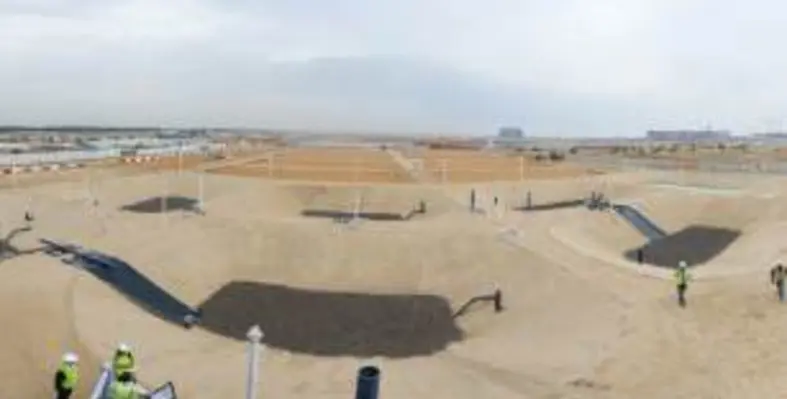The Sustainable Bioenergy Research Consortium (SBRC) has announced that in March 2016, it will begin operating the world?s first bioenergy research facility using desert land ? irrigated by seawater ? to produce both food and aviation fuels
The facility is located on a two-hectare site at Masdar City, a low-carbon, low-waste sustainable urban development in Abu Dhabi.
Dr. Behjat Al Yousuf, interim provost, Masdar Institute of Science and Technology, said, ?This game-changing research places Abu Dhabi at the centre of a global movement to advance technologies to produce sustainable, commercially viable bioenergy.
?Abu Dhabi?s commitment to advance breakthrough research that addresses water and food security ? with tremendous growth potential ? underpins the nation?s transformation into a knowledge-based economy. Considering that 97 per cent of the world?s water is salt water and about 20 per cent of the world?s land is desert, this approach turns a land and water resource scarcity problem on its head. Already, this research is attracting significant interest from other water and arable land-constrained countries.?
The research facility is a platform to explore the commercial viability and scale-up potential of an integrated, sustainable bioenergy system that produces food and fuel, without using arable land or fresh water in a desert environment. Successful development of this technology could support global food security, mitigate carbon emissions and reduce water pollution from industrial fish and shrimp aquaculture operations.
Masdar Institute, together with Etihad Airways and The Boeing Company, founded the SBRC to advance the aviation industry?s commitment to reducing its carbon emissions by developing a clean, alternative fuel supply. TAKREER, Safran and GE have since joined the research group.
The pilot project is based upon an integrated, closed-loop system. The technology uses coastal seawater to raise fish and shrimp for food, whose nutrient-rich wastewater then fertilises plants rich in oils that can be harvested for aviation biofuel production. The plants thrive in arid, desert conditions and don?t require fresh water or arable land to grow. Lastly, the effluent is diverted into cultivated mangroves before being discharged back into the sea, further removing nutrients and providing valuable carbon storage.







